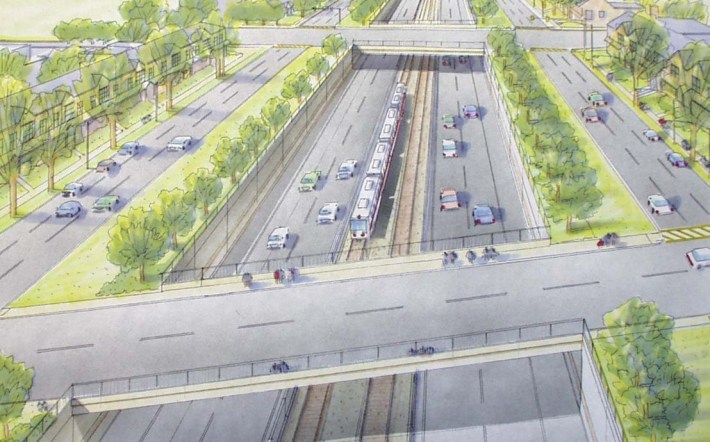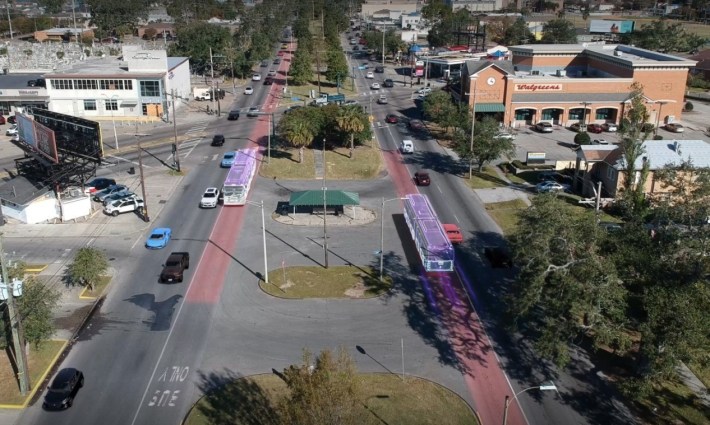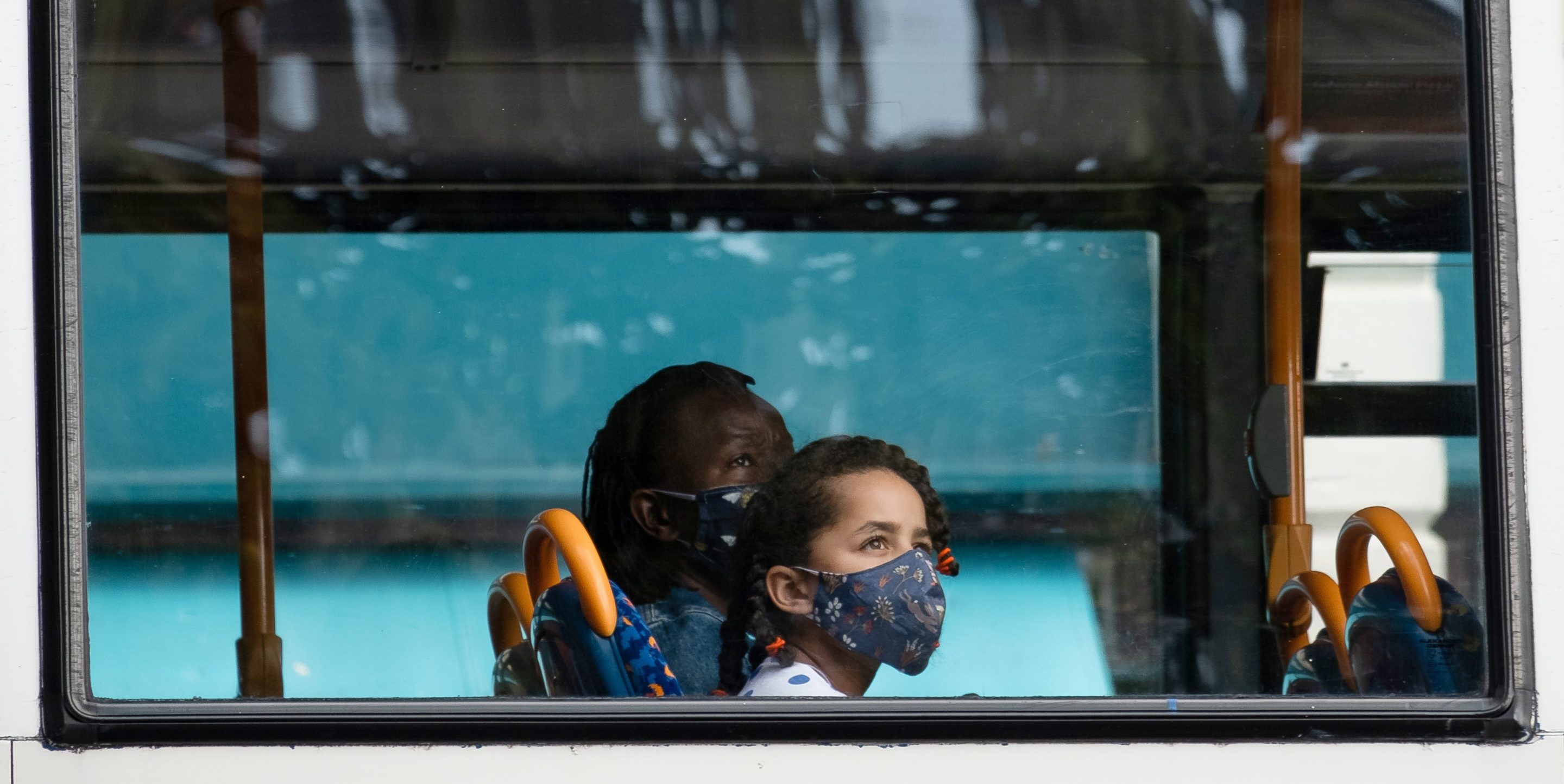Advocates are handing transportation leaders a list of equity-focused transit projects they should use federal money to build instead of freeway expansions — and a blueprint for how the Bipartisan Infrastructure Law can help heal the harms caused by federal transportation investments of the past.
After surveying local advocacy organizations across America, the nonprofit TransitCenter recently debuted a master list of more than a hundred visionary transportation initiatives that would "improve the mobility of Black and brown riders whose opportunities have been compromised by decades of transportation planning designed to primarily benefit more affluent white communities" if they were to receive full funding under the Biden administration's landmark infrastructure bill.
The group also inventoried more than 70 highway boondoggles and other "wasteful" projects that state DOTs have either proposed or already begun building, often with little input from the residents those efforts would impact the most. And that even includes some transit boondoggles that the group says don't adequately center the needs of underserved communities.
"So often, the things that we’re spending our capital dollars on don't reflect the priorities of the communities they run through," said Stephanie Lotshaw, TransitCenter's executive director. "This is an effort to say, 'Look, these are the priorities communities actually have.' When agencies make their decisions, this is where they should start, instead of defaulting to expanding roadways."
Lotshaw and her colleagues stress that freeway-building free-for-alls don't have to be the American default — even if some DOT leaders like to pretend otherwise. They point out that while only about 20 percent of the money promised by federal officials in the coming years is explicitly dedicated to transit and active transportation infrastructure, much of the other 80 percent can still be shifted towards things like bus lanes and light rail, even if it's funneled through the Federal Highway Administration.
In practice, though, those shifts rarely happen – even when environmental law demands that agencies forgo harmful autocentric projects and explore greener options. Lotshaw cites the recent ousting of Caltrans' deputy director Jeanie Ward-Waller, who was recently demoted by the Golden State transportation agency after she notified officials that she would file a whistleblower complaint over a highway widening Caltrans was attempting to sell as mere "pavement rehabilitation."
"Even in a state that’s at the forefront of our climate goals, they're continuing to expand highways," Lotshaw added. "And they're doing it at the expense of community input and the projects that should be prioritized for public funds."

And it's not like California is exactly hurting for better ways to spend their federal dollars, either, Among the three projects that TransitCenter cited as the standout candidates is the last phase of the Los Angeles Regional Connector subway project, which opened in June before last-mile walking and biking connections could be put into place.
The group also highlighted New Orleans's proposed East-West Bank bus rapid transit project, which would be the Big Easy's first taste of BRT. TransitCenter also spotlit Philadelphia's long-fought Roosevelt Boulevard subway project, which was first proposed over a century ago but still has not been built, even as the road has become one of the most dangerous in the country for pedestrians — a problem that re-dedicating part of the road to rail instead of drivers might help solve.
"Each of these projects shares a common thread — making urban transportation work better for current riders and Black and brown communities," TransitCenter wrote.


Lotshaw stresses that the organization's list isn't totally exhaustive, and advocacy organizations are welcome to submit their wishlists for the group's consideration, as well as projects-in-process in need of a funding push. And she also encourages advocates to send the list to help urge their state and local transportation officials to seize the moment and put these historic infrastructure grants to their highest and best use.
"It’s critical that in this moment, with the sheer amount of funding flowing to infrastructure, that decisions are being made to address the needs of communities that have historically been harmed by our transportation investments. [This money] needs to go towards the needs of the underserved and de-prioritized. ... No one knows better than communities what they need to thrive."
To submit a project for consideration to this list, email TransitCetner's Advocacy and Organizing Director Mary Dailey at info@transitcenter.org






